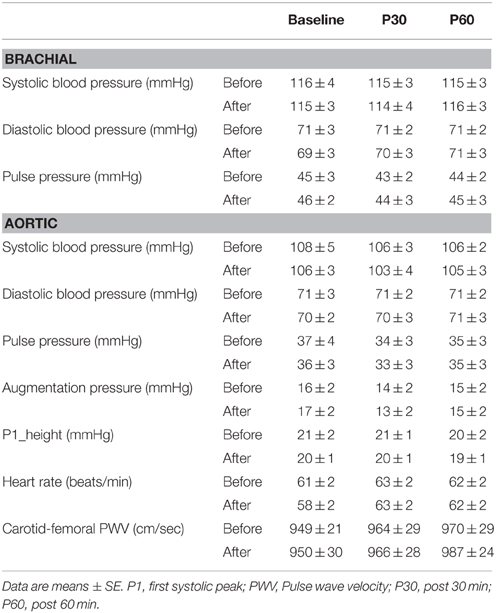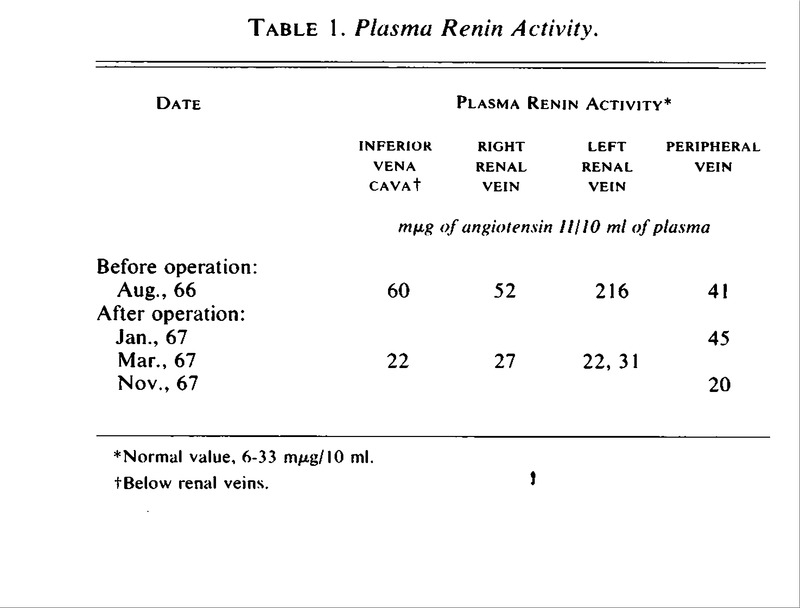A blood pressure reading of 114/62 is Normal.
View the full blood pressure chart to learn more about blood pressure readings.


What does a blood pressure reading of 114/62 mean?
Readings above 90/60 and below 120/80 indicate that the blood pressure in your arteries is Normal.
Blood Pressure Chart By Age. Understanding blood pressure readings is important. This is a reference for you regarding the normal blood pressure level for 1 month infant to 64 years old elderly. Blood Pressure Log. If you are a hypertension patient, you may need to track and keep your daily blood pressure numbers.
We recommend buying a blood pressure monitor to check it from time to time. Most monitors are quite cheap ($25-$50) and are easy to use. If your 110 over 60 blood pressure reading begins to dip too low, then it might be time to see a doctor. In the meantime, enjoy your safe blood pressure and good health. The AHA defines abnormal blood pressure readings in non-pregnant adults as follows. Elevated blood pressure is a systolic number between 120 and 129 and a diastolic number lower than 80.
What to do if your blood pressure reading is 114/62
Low Blood Pressure 104 62
You don’t have to do anything if you’re not on blood pressure medicine and have no other symptoms. You just keep on doing you!
Medications with Blood Pressure of 114/62
Already on blood pressure medication? If so, you may be taking more blood pressure medication than needed if your systolic (upper number) blood pressure is regularly greater than 110.
Talk to your doctor about adjusting your blood pressure medication dosage.
Lifestyle Changes with Blood Pressure of 114/62
Looking to get ahead of the curve and minimize the chance of developing high blood pressure? Lifestyle modifications for those with a blood pressure of 114/62 include the following:
- Stop smoking
- Lose weight
- Increase exercise
- Lower salt intake
- Reduce caffeine
- Limit alcohol
- Alleviate stress
So whether you decide to lay off the potato chips, make one less stop a week at the coffee shop or try out goat yoga, you’ll be doing one more thing to ensure your blood pressure stays normal.
+4 SourcesMy Medical Score performs research to ensure the content is accurate and timely. Our sources include high-quality academic research institutions, medical associations and peer-reviewed studies.
Understanding Blood Pressure Readings (American Heart Association)
https://www.heart.org/en/health-topics/high-blood-pressure/understanding-blood-pressure-readingsChoosing Blood Pressure Medications (Mayo Clinic)
https://www.mayoclinic.org/diseases-conditions/high-blood-pressure/in-depth/high-blood-pressure-medication/art-200462802017 Guideline for the Prevention, Detection, Evaluation, and Management of High Blood Pressure in Adults (Journal of The American College of Cardiology)
http://www.onlinejacc.org/content/71/19/e127?_ga=2.86879320.1182640551.1528306905-1524800955.1528306905Low Blood Pressure (MedlinePlus)
https://medlineplus.gov/ency/article/007278.htm
Blood Pressure Readings Near 114/62
By Angelike Gaunt, content strategist
Your blood pressure is the barometer of your overall circulatory health. Your circulatory system is made up of your heart and blood vessels, which carry oxygen and nutrients throughout your body. But did you know that more than 70% of U.S. seniors have high blood pressure? High blood pressure, also called hypertension, is a major health risk that can lead to heart disease, stroke, and chronic kidney disease.
You can help your elderly loved one take an active role in lowering their blood pressure with simple lifestyle changes such as increasing physical activity and eating healthy, balanced meals. If your aging parent lives in an assisted living community, ask about exercise programs and meal options that are low in sodium. But if changes in lifestyle don’t help, prescription medications have proven very effective in lowering blood pressure.
What Is a Good Blood Pressure Target by Age?
Blood pressure often rises with age, but experts agree lower numbers are better for overall health. Blood pressure is measured in two numbers: systolic and diastolic. The top number is the systolic blood pressure, which measures the pressure caused by the heart contracting and squeezing out blood. The bottom number is diastolic blood pressure, which measures the pressure when the heart relaxes and fills with blood.
Elderly Blood Pressure Range for Men and Women
Medical organizations’ guidelines for blood pressure targets in older adults differ. The American College of Cardiology (ACC) and the American Heart Association (AHA) updated their guidelines in 2017 to recommend men and women who are 65 or older aim for a blood pressure lower than 130/80 mm Hg.
Blood Pressure 112 Over 62

| Blood Pressure Category for Adults 65+ | Systolic mm Hg | Diastolic mm Hg |
|---|---|---|
| Low blood pressure | 90 or lower | 60 or lower |
| Normal blood pressure | Lower than 120 | Lower than 80 |
| Elevated blood pressure | 120 – 129 | Lower than 80 |
| High blood pressure stage 1 | 130 – 139 | 80 – 89 |
| High blood pressure stage 2 | 140 or higher | 90 or higher |
| High blood pressure crisis — see your doctor immediately | 180 or higher | 120 or higher |
For older adults whose blood pressure is elevated but lower than 130/80 mm Hg, lifestyle changes such as increasing physical activity, eating a heart-healthy diet that is low in salt, and limiting alcohol can help regulate it.
The updated ACC and AHA guidelines recommend that older adults with a blood pressure reading of 130/80 mm Hg or higher be treated with medication. Previous recommendations set the threshold for high blood pressure treatment with medication for adults 65 or older at 150/80 mm Hg.
This change aims to reduce the risk of heart disease in older adults. However, your loved one’s doctor will assess their overall health and any other conditions before determining the best course of action to help your aging parent control their blood pressure.
Since blood pressure tends to increase with age, some medical societies argue about the effectiveness and safety of treating older adults for high blood pressure. Overall, older adults should aim for lower blood pressure numbers but a blood pressure reading of 90/60 mm Hg or lower is considered too low (hypotension). Excessively low blood pressure may cause dizziness or fainting, and increase the risk of falls.
Why Does Blood Pressure Increase With Age?
Doctors don’t completely understand why blood pressure tends to rise with age. Blood pressure is the force of blood as it flows through the arteries. As you age, your arteries may narrow and become stiff. Narrow arteries lead to an increase in blood pressure. High blood pressure can damage the walls of the arteries and the heart itself.
In some cases, high blood pressure could be a result of lifestyle, the environment, certain medications, or other conditions such as sleep apnea, kidney disease, or thyroid problems.
What You Should Know About Fluctuating Blood Pressure in the Elderly
As you help monitor your loved one’s blood pressure, keep in mind that numbers fluctuate slightly throughout the day — that’s normal. Several factors influence your blood pressure numbers. For example, your blood pressure may be lower if you’re resting and higher if you’re stressed. This means you may have a normal reading in the morning and an elevated number in the afternoon.
If you’re concerned about excessive fluctuation in your loved one’s blood pressure numbers:
- Read instructions to ensure you’re using your home blood pressure monitor equipment correctly. Variations in how you measure your loved one’s blood pressure can result in different readings.
- Bring your home monitor to your next doctor’s appointment to compare readings.
- Be aware of “white coat hypertension.” In some cases, a person’s blood pressure may be high at a doctor’s office but normal at home. This could be attributed to the stress related to a doctor’s appointment.
Your loved one’s doctor may want you to keep a blood pressure diary with several readings a day for a couple of weeks to monitor any variations.
How Older Adults Can Maintain a Healthy Blood Pressure
Maintaining a healthy blood pressure doesn’t have to be complicated. Simple lifestyle changes can help:
Is 114 65 Good Blood Pressure
- Exercise. National guidelines recommend adults of all ages engage in at least 150 minutes of moderate physical activity each week. If mobility or health conditions are a problem, older adults should try to be as physically active as possible.
- Lose weight. If your loved one is overweight, every 2 pounds lost can help reduce blood pressure by 1 mm Hg.
- Eat a heart-healthy diet low in salt. The DASH diet is rich in fruits, vegetables, whole grains, poultry, fish and low-fat dairy foods. It was designed specifically to help lower blood pressure. Try to limit sodium to no more than 2,300 milligrams per day.
- Avoid drinking alcohol. Alcohol can raise your blood pressure. If your loved one chooses to drink alcoholic drinks, limit it to no more than one drink a day for women and up to two drinks a day for men.
- Don’t smoke. Tobacco damages your artery walls. If your loved one smokes, ask their doctor how to help them quit.
- Manage stress. Try simple relaxation techniques, such as deep breathing exercises or meditation.
In some cases, diet and lifestyle changes are not enough to lower blood pressure. Your loved one may be having a difficult time achieving significant changes in their lifestyle, or their hypertension may be too severe to treat with diet and exercise alone.
Blood Pressure Is 106 62
Several types of medication are available to treat high blood pressure. Talk to your elderly loved one’s doctor about whether a combination of medication, diet, and lifestyle changes may help control their blood pressure.



